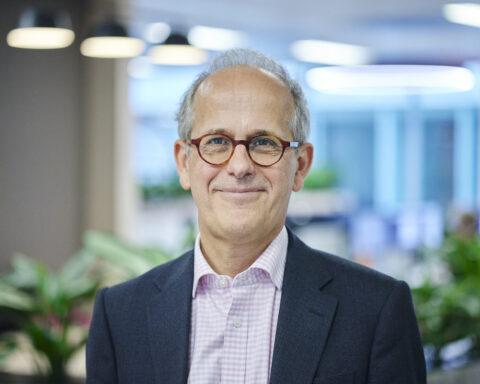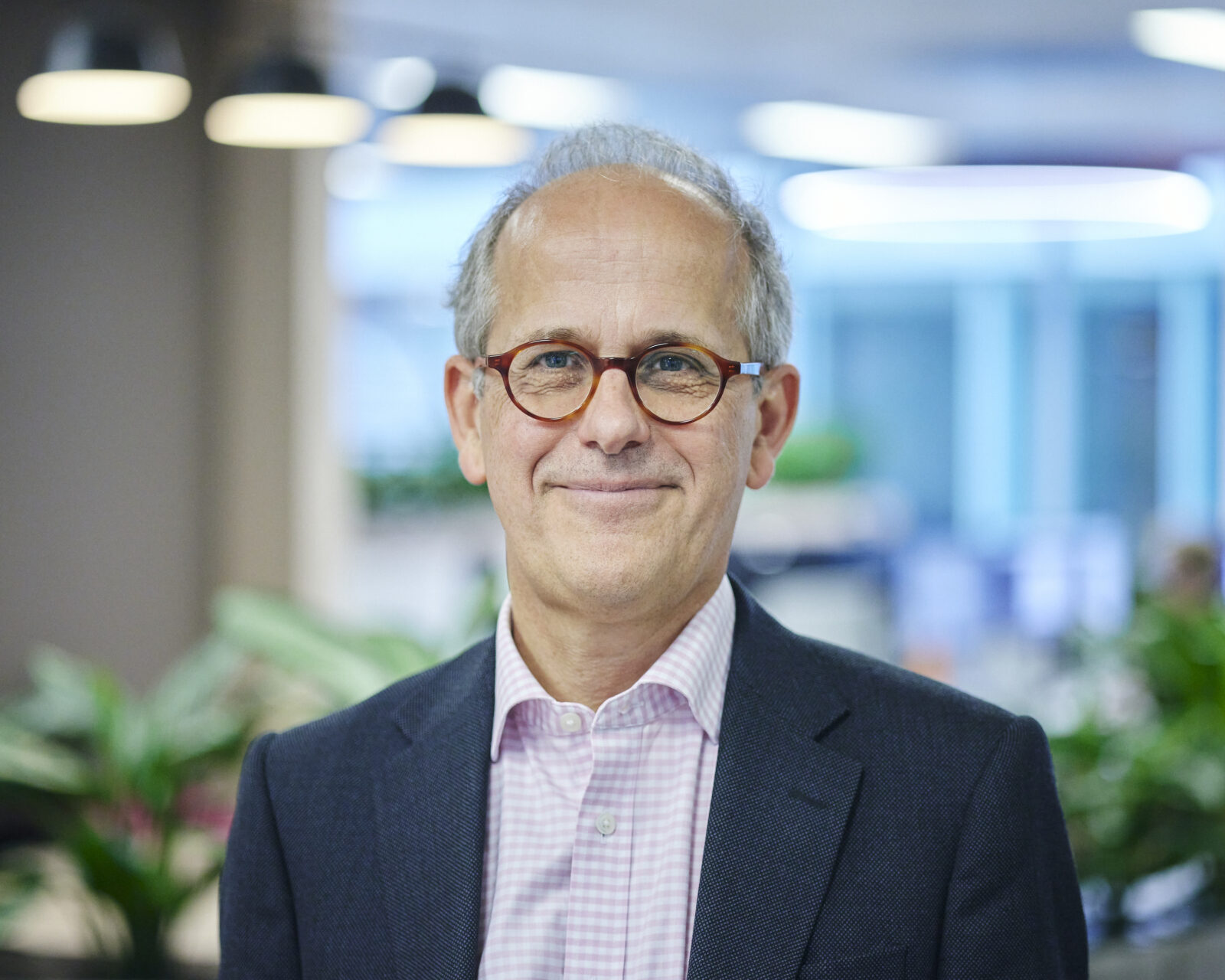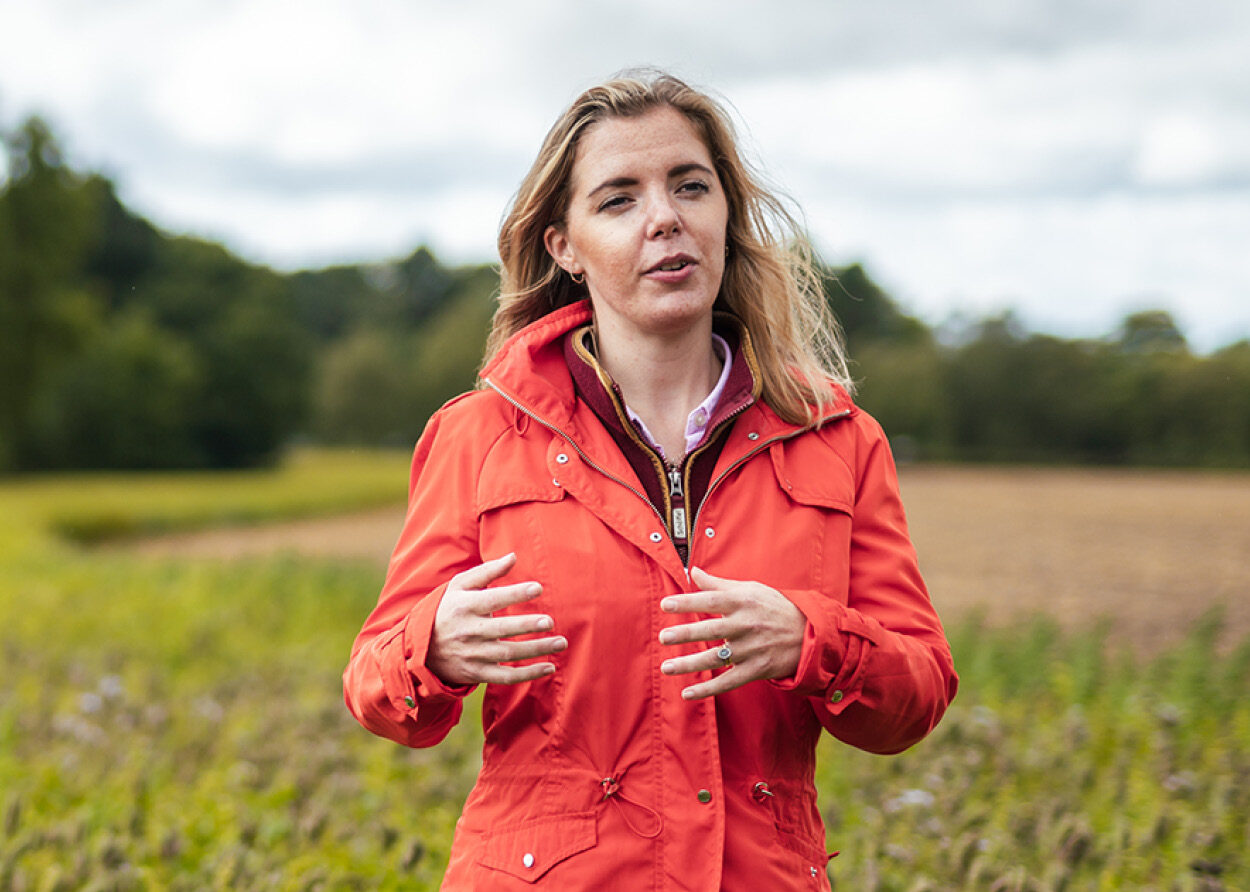The Net Zero podcast episode 2 – An interview with Dyson Farming

This website will offer limited functionality in this browser. We only support the recent versions of major browsers like Chrome, Firefox, Safari, and Edge.




In this episode of the Net Zero podcast, Tom Hewitt speaks to Joanna Knight, an Estate Surveyor at Dyson Farming, about how Dyson Farming are managing the future challenges facing farmers today.


Tom Hewitt (Partner, Burges Salmon)
[Music] Hello and welcome to the Burges Salmon Net Zero podcast. My name is Tom Hewitt and I lead the Food, Farming and Land group at Burges Salmon.
In today’s podcast I will be speaking to Joanna Knight, a state surveyor for Dyson Farming Limited, the largest in-hand farming business in the country, and probably the first large-scale commercial farm in Britain to be carbon neutral.
We’ll be speaking about how Dyson Farming and managing the future challenges facing farmers today, and of course, a key challenge is the Government’s target for Net Zero by 2050.
Currently, agriculture emits 10% of the UK’s annual greenhouse gas emissions.
Hi Joanna, and thank you for joining us today.
Joanna Knight, Estate Surveyor, Dyson Farming
Hi Tom, no it’s an absolute pleasure and thank you for having me.
Tom Hewitt
I think this is a really fascinating and challenging time to be involved in farming and the ownership of land.
We’re on the cusp of what’s sometimes called the fourth agricultural revolution, driven by technology and data.
We’ve got targets for Net Zero, as well as that other very immediate crisis in biodiversity, and at the same time we’re seeing the withdrawal of the basic payment scheme, that key support payment for farmers, and as yet it’s largely unclear what it’s replacement, ELMS, Environmental Land Management Scheme, will look like, and how generous will it be?
How are you seeing these challenges at Dyson Farming, and how are you dealing with them?
Joanna Knight
Yeah I think there’s some really great statements there, and I think really for the industry as a whole it’s actually a very exciting time to be involved in agriculture.
Whilst there are some very clear challenges, which you really outlined there, I think there’s also some really great opportunities, certainly for those within the industry that are quite open to embrace change, which I think is a very important aspect of this transition really.
Talking more for Dyson Farming, we’ve been preparing for quite some time, certainly with investments in soils, environmental stewardship and, obviously, the core infrastructure of the farming enterprise.
And this has really been going on since Sir James Dyson started buying the land.
Yes, I think there is a huge transitional shift, with the reduction in BPS, and this is a really very challenging concept for the industry.
The Government has started to outline more about what ELMS will look like, the Environmental Land Management Schemes, particularly with the sustainable farming incentive, which is coming through as of next year.
But clearly from this, there is still a long way to go.
And as a business, we’ve always worked towards having a business model, but didn’t include the BPS receipts.
I think certainly from the perspective of carbon and biodiversity, it’s certainly becoming more prominent within the industry.
The challenge is still understanding that, and in relative terms it’s complex and it requires a different approach and mind set.
So, particularly with carbon, this is an area that I think farmers have received quite a lot of scrutiny. Certainly more recently, but let’s not forget that some of the key answers are within the industry itself, certainly in achieving some of the Net Zero targets and beyond that.
Tom Hewitt
I know you as a business are carbon neutral, and I think that’s pretty unusual amongst large commercial farms, how are you different then from other large commercial farms, and what enables you to claim that rosette?
Joanna Knight
I don’t know if we’re necessarily any different from any other commercial farms, and obviously I can’t talk for any of the farmers out there, but certainly from our perspective, there’s a lot of work going on in terms of collating our natural capital account, so myself and a colleague work very closely on that and we’ve spent a considerable amount of time actually understanding what we have.
Certainly from the perspective of carbon, I think it’s really important not only to understand your emissions, but also the sequestration element.
Often than not, you find that actually they’re looked at in separate pieces, but actually you’ve got to look at it in the round, and we’ve spent a lot of time doing this and really understanding that.
And effectively creating a baseline for ourselves to benchmark internally in the future.
So, it’s difficult for me to compare to what others are doing, but that’s certainly what we’ve been spending our time concentrating on
Tom Hewitt
And you mentioned data there, Joanna, and obviously data collection is going to be key to many aspects of future land management. Is one of the difficulties we’ve got at the moment that there isn’t a common measurement, whether it’s in soil health, which has got really particular challenges, but also biodiversity or natural capital.
So, the data you’re collecting now, will it translate into whatever DEFRA may say is the necessary metric for ELMS in the future? Or, issues like that?
Joanna Knight
Yeah, absolutely. I think that data is key and it’s fundamental to any business.
Again, a considerable amount of work that we do, and in fact all of the work we do whether it’s farm estate property management, it all really points to the same thing, and that’s really the need for essential platform.
Somewhere that enables efficient data collection, and the ability to benchmark, not only for ourselves internally, but also externally in the future, and being consistent in what data we have.
There are so many different management systems out there, and obviously what system you use as a business is a decision that you make because that’s most suited to what your structure is, but the amount of management systems and software that are out there, without even considering Excel which is obviously a huge base for collating data, it can really be quite overwhelming. And I think a lot of these systems, they need Excel to bring them together.
But really, for us, as we’ve been on this journey it’s really highlighted the incompatibilities sometimes of the available systems.
And there’s lots of frustrations out there, there’s duplication and certainly farmers out there will be all too aware of the multiple audits that we have to go through on an annual basis, and if there was a central data system for that, it would make everything so much slicker and easier and more efficient.
For Dyson certainly with carbon accounting, if we look at that specifically, we actually took the decision to select a specific management tool that suited our business, which meant that we were able to internally benchmark.
But, the important thing for us at this stage was really the direction of travel, not necessarily the answer.
So, it’s always improving, always understanding, and gaining better understanding of where we are as a business.
Tom Hewitt
I think one of the things that interests us as lawyers is the question on ownership of data, and that’s being talked about increasingly in terms of whether you’re tied to a particular provider of software, or your tractor or your sprayer or whatever is collecting the data, making sure that that data is portable and you’re not tied to a particular supplier is going to be increasingly important, I think.
Joanna Knight
Absolutely.
Tom Hewitt
I think it’s also right that your analysis of your numbers, really reveal to your business how much more you are spending on land stewardship than you’re actually receiving in grants.
And I suppose my question here is in two parts, do you think, and I appreciate you can’t speak for other farmers, but do you think that’s a fairly common position for many farmers, but they don’t know it because they haven’t been able to get into the detail in the way that your analysis has enabled you to?
And the second question then, is, if it is costing you more than you’re receiving, why do you do it?
Joanna Knight
Yeah some great questions, I think, and you’ve sort of already answered it, certainly the first part of that question, it’s very difficult, again, for me to really comment on other businesses and their business models, and the investment they make, every one is going to be different, and even just looking at landscape, so, it’s going to be very dependent on the business model as to how much and what level of improvement they’re going to make in their infrastructure and investment that there is.
For us it was really important that we understood our position,
we have a team that’s dedicated to environmental management, and we needed to have a better understanding of where our focus needed to be.
So it was really important for us to keep forging forwards, and by understanding where our receipts were but also where expenditure was, we were able to be in a better position to contribute towards the value of environmental and infrastructure management, and what is required to encourage more investment in the future, which I think is where we’re really at with ELMS right now.
So I think that was a really important aspect for us, to really drill down into that and really understand where the investment was, and how it’s going to contribute going forward.
I love that second question, why do we do it? I think it’s a great question
I think that the genuine and most straightforward answer to that, is we do it because we believe it’s the right thing to do.
It’s important for any business to have values and stick to them and do the right thing, and I think the challenge is really to demonstrate how we can add value, so in the future this value can be represented in the price that we receive.
So, this is really another level of communication to customers and consumers and having a food brand in the future will help us with this.
But with no investment, the future could look pretty bleak, if we don’t invest in our soils, which is fundamental to our farming business, then the wider environment and
the ecosystem simply won’t thrive.
Which is ultimately going to have an impact on crop relaxation and wider aspirations for us as a business with carbon and natural capital and other things that come from that.
So, it was really important for us to see the bigger picture.
What we do now will benefit many aspects of the business in the future, and, importantly, come down to what the family’s aspirations are.
Tom Hewitt
And, I can see it’s a really difficult balance to maintain, but ultimately I guess you’re a commercial farming business, and the withdrawal of the basic payment scheme, the BPS, what future do you see in growing commodity crops?
Feed wheat, for example, where you can’t add value by saying this is a Dyson product because the cattle that are eating it aren’t going to pay a premium price because it’s Dyson feed wheat.
Joanna Knight
I can honestly say that I think that the future is positive.
As I adhered to earlier, there’s going to be a need for mind set change and ultimately businesses are going to have to look harder, farming businesses are going to have to look harder, at productive land and less productive land.
So, for example, with Dyson Farming we have a Hall of Shame, this is across all of our farmed land, and it analyses the performance in terms of yield and then we can literally rank best to worst fields, and this really facilitates future management decisions that we can make in terms of crop production, but also future land management as well.
So producing commodity crops is really a big part of what we do.
We’re on a journey to preserve the identity of our crops as they pass through the food chain.
So, there will need to be a closer collaboration, certainly with the end user, through direct sales, which will be really important, certainly in preserving identity, quality but also our environmental standards as well.
I think land use change will happen in places.
There are still requirements for quality food production, and I think this can only be really highlighted as to where we’ve been, nationally and globally, where we’ve been over the last eighteen months with the impact of COVID.
I do actually think that there’s still a considerable gap between the understanding of farming and the contributions it makes, and where the public perception lies.
And I think it’s really up to us as an industry to try and close that gap.
I think it’s a great example, if you haven’t watched it and if you have, the Clarkson farming show is definitely showing that actually, it’s giving a good message across, and hopefully not only has it touched people within the industry, but outside as well.
Tom Hewitt
And don’t buy a Lamborghini tractor!
Joanna Knight
Definitely not!
Tom Hewitt
It is interesting, and I’m looking out the window here at an awkwardly shaped field of winter wheat with black grass swaying in the wind above it, and I think it would be very interesting to see whether in the future if it’s still grows wheat or the whether farmer concludes that it’s a marginal field and he can concentrate on more productive fields and do something more profitable with this rather oddly shaped and not-in-very-good-heart-field.
But anyway, time will tell on that.
Joanna Knight
I think certainly with that it is important to highlight the fact that the technology is out there and it’s coming.
And there will be change, but I genuinely do believe that there is a positive future.
I think we’ve got to just keep going with that, definitely.
Tom Hewitt
And you mentioned technology, and of course Dyson is best known as a technology company, or at least the name Dyson is best known as a technology company, and one of the key aspects we’re going to see is this huge upgrading of technology and in farming, and with AI and so on.
Is there an overlap between what you do in Dyson Farming, and what the tech side of the business is doing?
Joanna Knight
Yeah, I think one of the key aspects of the link between Dyson Farming and Dyson technology, is our recent name change.
So, previously we were known as Beeswax Dyson Farming, that’s now changed to Dyson Farming.
And I think this just highlights the synergy that’s taking place between the Farming enterprise and the wider Dyson group.
There is increasingly more engagement, I can’t go into it in too much detail, but I think there will be more to come in the future.
Certainly for Dyson, just to give you a bit of a flavour, Dyson Farming produce the lamb, potatoes, strawberries and peas that all go down to the canteens in the Dyson tech set-up, down in Malmesbury.
So, there’s a link there and there’s more communication, and there will be more in the future.
So, it’s exciting.
Tom Hewitt
Well how interesting, gosh I nearly had a scoop there!
So if we repeated this conversation in ten years time, what visible improvements do you think I might see?
Not necessarily just out of my window, but driving around, or perhaps the less visible improvements, the soil health improvement, which of course are less obvious to the naked eye.
What do you think? What would you like, and hope to see in the Dyson Farming estate?
Joanna Knight
So I think in terms of ten years time, we’ll have got a well established baseline in terms of our soils, biodiversity, our carbon efforts, and have an annual accounting report in place, which will contribute to the wider business model.
I think that, well I hope, that there will be a consistent and clear measurement tool system out there for collating the data. Not just for us, as a business, but for the wider industry.
This will really be able to facilitate future benchmarking.
Certainly there’s obviously a lot more to come in terms of carbon markets, biodiversity net gain, but actually until we can get there we need some level of consistency within the industry.
The data collated will be able to show how we have improved as a business, with our management.
Then we’d like to think at that point we will have increased our loyal customer base, who are enjoying our food and supporting our approach to a more regenerative agricultural system.
And I suppose one of the interesting things about technology is that it promises perhaps a kinder type of farming with no blanket application of herbicides, but a selective application, and all of these things could be very beneficial for biodiversity perhaps.
So, so many of these developments are pointing in the same direction.
Absolutely, the technology is there and it’s coming, and that’s the really exciting bit of it, of the industry.
And I think when it gets here and progresses, we will see more change.
And I think we can only be anything but positive, and learn and understand better, and continue to improve.
So I strongly believe the future is bright, it just looks different.
Tom Hewitt
Well, Joanna, thank you so much. That’s been really interesting and great to hear your very positive view of how the future’s going to look.
I think we should put in the diary a meeting in ten years time, and see if the predictions have come true.
But I think it’s nice to hear such a positive view of the future.
Thank you for joining us.
Joanna Knight
No, thank you Tom, thank you.
Tom Hewitt
Thank you for listening to the Burges Salmon Net Zero podcast.
If you would like to know more about our Net Zero approach and how our experts can work with you, you can contact me, or any of the team, via our website.
If you enjoyed this podcast, you may also enjoy listening to our previous episode, ‘Net Zero: Challenges and Opportunities’, which is available on Apple, Spotify or wherever you listen to your podcasts.
Thank you again for listening